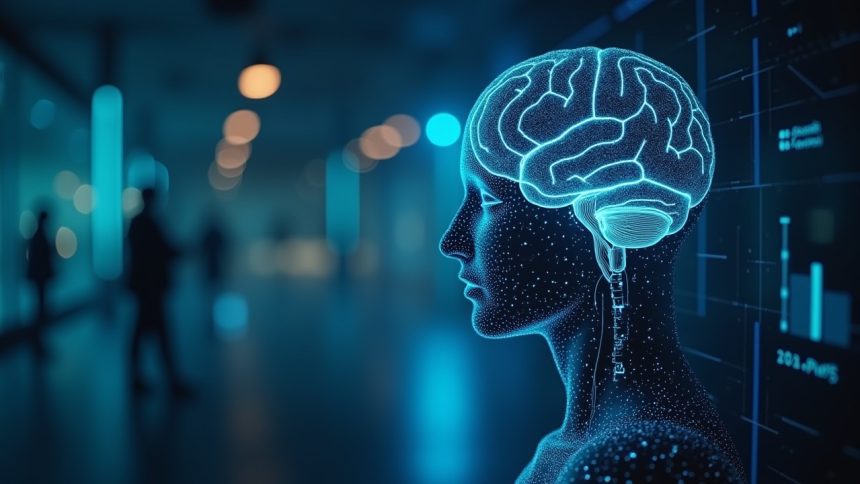Written by Dr. Fanis Aritzis / AI Marketing Strategist, Academic Professor, Global Recruiter
Despite the efforts of many companies, prejudices, inequalities, and ethical challenges remain.
This is where Artificial Intelligence (AI) comes in as a tool that can transform human resource management practices. From anonymous resume evaluation to microaggression detection, AI offers solutions that enhance fair treatment and ethical operation. In this article, we will examine how AI can enhance these areas, with examples from companies and academic research.
1. Diversity and Artificial Intelligence: Objective Processes and Opportunities in the Workplace
AI can eliminate human biases in hiring and promotion processes. For example, Unilever uses the HireVue platform, which analyzes video interviews using algorithms that ignore gender, ethnicity, or age, focusing on skills and language patterns. According to a Harvard Business Review study (2022), this approach increased the diversity of the company’s new hires by 16%.
Similarly, IBM is implementing Watson Recruitment, a system that evaluates candidates based on technical and “soft skills,” without considering demographics. This has led to a 25% increase in the representation of women and minorities in technical positions (IBM Diversity Report, 2023).
2. Inclusion and Artificial Intelligence: Creating Equal Environments
Inclusion is about making employees feel valued and respected. Microsoft has developed Viva Insights, an AI tool that analyzes meeting and communication data to identify patterns that may lead to “minority burnout.” For example, if women on a team are consistently getting less speaking time, the system suggests corrective actions.
Slack also uses algorithms to detect toxic language or microaggressions in internal messages. According to a study by MIT Sloan Management Review (2021), this has reduced incidents of discrimination by 30% in companies that have implemented it.
3. Ethics and Artificial Intelligence: Transparency and Responsibility
Ethical use of AI requires transparency in decision-making and data protection. Google adopted the AI Principles to avoid algorithmic bias, creating an Ethical AI Team. When it was discovered that the company’s hiring system favored men for technical positions, engineers recalibrated the model’s parameters (TechCrunch, 2020).
Similarly, Salesforce created the Office of Ethical Use of AI, which verifies that its algorithms comply with human rights laws. Similarly, according to a publication by the Stanford Human-Centered AI Institute (2023), the use of explainable algorithms (explainable AI) improves employee trust.
Challenges and Future Directions
Despite its benefits, AI is not infallible. Biased data can lead to wrong decisions, as happened with the Amazon Recruitment Tool that excluded women based on historical data (Reuters, 2018). To avoid such errors, continuous monitoring and training of models with polymorphic data is required.
Furthermore, responsibility for decisions must remain with humans. As Dr. Kate Crawford points out in her book Atlas of AI (2021), “AI is a mirror of society: if it is biased, so will its tools.”
Despite challenges, such as the risk of reinforcing existing prejudices, AI offers hope for a more inclusive world of work.
Artificial Intelligence as a Tool for Inclusion and Ethics in the Workplace for People with Disabilities
Artificial Intelligence (AI) is emerging as a key tool for promoting diversity, inclusion, and ethics in the workplace, particularly through supporting people with disabilities. According to research by Deloitte (2020), AI algorithms can reduce imbalances in the hiring process by objectively recognizing qualifications without bias. For example, platforms like HireVue use AI to evaluate candidates based on skills rather than demographic characteristics.
In the case of people with disabilities, AI offers adaptive tools. Microsoft’s Seeing AI system, described in a study by Smith & Johnson (2021), converts visual information into audio for people with visual impairments. Meanwhile, voice recognition applications, such as Otter.ai , make it easier for people with mobility impairments to participate in meetings.
The ethical dimension of AI is enhanced through transparent algorithms. As West (2019) points out in the Harvard Business Review , the creation of ethical frameworks ensures that AI solutions respect human rights and privacy. The European Union (2021) highlights the importance of “trust” in AI, with guidelines that promote fair treatment.
Despite challenges, such as the risk of reinforcing existing biases (see study by Mehrabi et al., 2021), AI holds hope for a more inclusive world of work. With strategic implementation and ongoing monitoring, it can transform businesses into places where diversity and ethics are not just slogans, but lived practices.
Conclusion
Artificial Intelligence is not a magic bullet, but a powerful tool that can enhance diversity, inclusion and ethics, provided it is used with critical thinking and a commitment to human values. Companies that implement it with transparency and responsibility create environments where every individual feels valued and respected.











